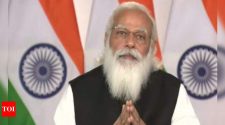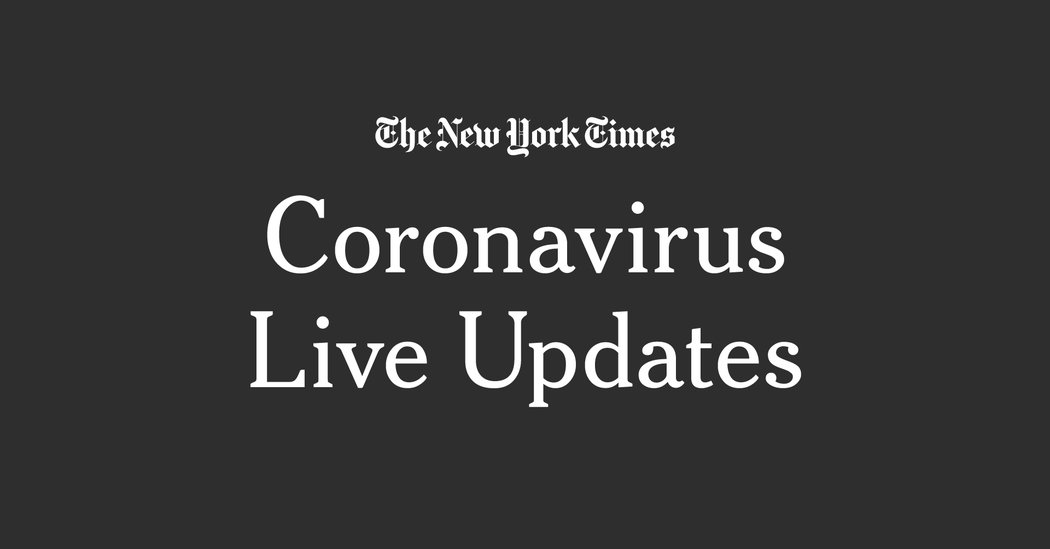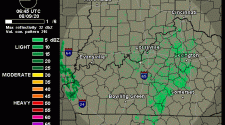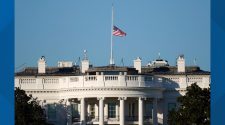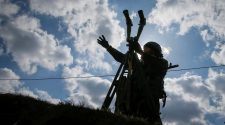Teachers unions sue Florida’s governor over order requiring schools to reopen despite virus surge.
Teachers unions sued Gov. Ron DeSantis of Florida on Monday over his administration’s emergency order pushing schools to fully reopen next month even as coronavirus cases in the state are surging.
The suit, which appears to be the first of its kind across the country, sets up a confrontation between unions and politicians that could change the trajectory of school reopening over the coming weeks. In other parts of the country, including California and parts of Texas, many large school districts have concluded in recent days that it is not safe to hold in-person classes. But Mr. DeSantis, a Republican, has been pushing for things to be different in Florida, which is home to five of the country’s 10 largest districts.
Earlier this month, Mr. DeSantis’s administration ordered schools across the state to reopen five days a week starting in August. His edict came as President Trump called for schools to reopen nationwide and threatened to cut federal funding for districts that did not teach in person.
The American Federation of Teachers, the nation’s second-largest teachers union, and its local affiliate, the Florida Education Association, accused Mr. DeSantis of violating a Florida law requiring that schools be “safe” and “secure.” (An earlier version of this article incorrectly described the A.F.T. as the nation’s largest union.) The unions, along with parent and teacher plaintiffs, asked a state court in Miami to block the governor’s reopening order and allow local school superintendents and health departments to have full control over reopening decisions.
Mr. DeSantis distanced himself from the executive order on Monday, noting at a news conference that it had been issued by the state’s department of education, not by him. “You know, they have a board and they do different things,” he said.
The order was signed by Richard Corcoran, the state’s commissioner of education, a former speaker of the Florida House who was tapped for the position by Mr. DeSantis when he was governor-elect and who was officially appointed by the board.
But Mr. DeSantis has urged schools to reopen for in-person instruction. “If fast food and Walmart and Home Depot — and I do all that so I’m not, like, looking down on it — but if all that is essential, then educating our kids is absolutely essential,” Mr. DeSantis said this month. “And they have been put to the back of the line in some respects.”
On Monday, Florida became the eighth state where at least 5,000 people with the virus have died after it added a daily tally of 90 deaths. The state also added 10,347 cases.
Public health experts have said districts should consider reopening only if they are in a region with a positive test rate at or below 5 percent. Miami-Dade County has recently reported positivity rates more than four times greater than that threshold, and the plaintiffs argue that it would be among the most dangerous places in the state to reopen schools.
Mr. Trump said on Monday that he is bringing back the daily coronavirus briefings that he halted in April, a tacit acknowledgment that the public health crisis that he has sought to put behind him is still ravaging much of the country.
“I was doing them and we had a lot of people watching, record numbers watching in the history of cable television. There’s never been anything like it,” Mr. Trump told reporters in the Oval Office during a previously unannounced meeting with congressional Republicans. “It’s a great way to get information out to the public as to where we are with the vaccines, with the therapeutics.”
The original briefings over the course of weeks from March to April were made-for-television events, with scientific information provided by public health experts often overshadowed by a confrontational president castigating governors, lawmakers, China, reporters and others he deemed insufficiently grateful to him for his leadership. He used them to defend his administration’s response to the virus and promote a pet drug as a possible treatment over the advice of his own experts.
He eventually quit holding the briefings after he was mocked widely for suggesting that people might be able to counter the virus by ingesting or injecting bleach, an offhand comment that sent public health agencies scrambling to warn the public not to try such an approach because it could be fatal. Singed, Mr. Trump declared that the briefings were “not worth the time & effort.”
But in recent weeks, the surge of cases, particularly in the South and West, has frustrated Mr. Trump’s effort to diminish the seriousness of the continuing pandemic. The United States now records more than twice as many cases each day as it did during the height of the daily briefings, and the number of deaths, which had fallen substantially, has begun to rise again as well.
The decision to revive the briefings offers a substitute of sorts for the campaign rallies that Mr. Trump had hoped to restart by now. His initial attempt at returning to the campaign trail fizzled when only a third of an arena in Tulsa, Okla., was filled and his second, a rally set for New Hampshire, was scrubbed amid concerns about low attendance, with the campaign citing weather as a reason to cancel.
Mr. Trump, who has generally resisted wearing masks in public or strongly endorsing their use despite the advice of federal health officials and pleas from some governors, posted a picture of himself in a mask on Twitter on Monday, writing “many people say that it is Patriotic to wear a face mask when you can’t socially distance.”
White House officials have said in recent days both that the president is too busy to attend virus task force meetings and that he is working “around the clock” on the virus. But even as hospitals fill up and governors reverse decisions to reopen, Mr. Trump has continued to insist that the virus would simply vanish on its own.
“It’s going to disappear and I’ll be right,” Mr. Trump said in an interview aired on “Fox News Sunday” over the weekend. “Because I’ve been right probably more than anybody else.”
U.S. Roundup
The virus appears to have caught up with the Villages, one of the biggest U.S. retirement communities.
As Florida has worked to protect its oldest, most vulnerable residents from its surge in cases, the virus appears to have caught up with the Villages, a sprawling retirement community so big it has three ZIP codes, 12 golf courses and multiple libraries and movie theaters.
Since the beginning of July, hospital admissions of residents from the Villages have quadrupled at University of Florida Health The Villages, the hospital’s critical care doctors said. As of last week, the hospital admitted 29 Villages residents, all of them with the virus, said Dr. Anil Gogineni, a pulmonologist and critical care doctor there.
In Sumter County, where part of the Villages is located, there were 270 cases last week, up from 68 in the first week of June, according to the county’s health department.
Now many residents are confronting their new reality. “It’s seeping in, no matter what,” said Rob Hannon, 64. The golf course is still crowded, he said, as well as the hair salon where his wife, Michelle, 53, works. “The women are still coming in, but they’re a little more anxious,” Mr. Hannon said. “You can’t stop living. But you can stop being cavalier.”
In an email to residents last week, Jeffrey Lowenkron, the chief medical officer of the Villages, said cases were increasing and urged people to take “steps to reduce the risk of disease transmission.”
The virus poses special risks in Florida, where about a fifth of the population is 65 or older, who are especially vulnerable. While more than a third of the cases in the state, one of the worst hit in the nation, have been among people under 34, according to the Florida Department of Health, there have been signs that the age of those infected is shifting. Jackson Health System, Miami-Dade County’s public hospital, said last week that 18 percent of its virus patients were 80 or older. Two weeks before, that figure was 9 percent. Elsewhere in the United States:
-
Minnesota, which on Monday reported 900 new cases, a single-day record, also reported its first virus-related death of a child, according to the state’s health department. The department said the child was 5 years old or younger, but did not list the exact age.
-
Mayor Lori Lightfoot of Chicago is rolling back some of the city’s reopening rules to “help limit further community spread,” she said Monday. Starting Friday, bars will once again be banned from serving alcohol indoors; services like shaves and facials that require people to take off their masks will be banned; indoor fitness classes will be limited to 10 people; and property managers will be asked to limit guests to five per unit to prevent parties.
-
The largest school district in Georgia, Gwinnett County Public Schools, said that classes will begin on Aug. 12 with online-only instruction.
-
Alaska on Monday reported 137 new cases, a single-day record.
-
The annual Marine Corps Marathon will be canceled this year. The organization that runs the event said there will be a “virtual” marathon in place of the October race.
-
Delta Air Lines said it would require passengers unable to wear face masks because of health conditions to undergo a medical clearance at the airport before boarding — or the passengers should “reconsider travel” altogether. United Airlines said that starting next week it would leave its high-efficiency particulate air, or HEPA, filtration systems running as passengers get on and off most planes — a move intended to maximize air flow.
Top Republicans met with Trump to smooth the way for their relief package.
The two top congressional Republicans met with Mr. Trump at the White House on Monday morning in an attempt to smooth over differences with the administration about what should be in the next round of federal relief.
The meeting, which included Mr. Trump, Senator Mitch McConnell of Kentucky, Representative Kevin McCarthy of California and Treasury Secretary Steven Mnuchin came after the administration moved over the weekend to block billions of dollars that Republicans had included in their draft proposal. Money had been allocated for testing and tracing efforts across the country, and to fund federal health agencies, and the move infuriated congressional Republicans.
Mr. McConnell had planned to unveil his opening offer before entering what is expected to be a grueling set of negotiations with Democrats. The focus of the plan, Mr. Mnuchin said, would be on “kids and jobs and vaccines.”
“We want to make sure that people who can go to work safely can do so,” he told reporters at the White House. “We’ll have tax credits that incentivize businesses to bring people back to work.”
The two parties remain far apart on a number of critical issues that need to be resolved before August: expanded unemployment benefits for millions of Americans that are set to expire at the end of the month, additional funding for state and local governments, money for schools, and liability protections for workers and businesses that remain open during the pandemic. The Republican offer is likely to be a package of about $1 trillion.
Democrats say their starting point remains a far more expansive package , and they are signaling that they are willing to block the Republicans’ bill if they consider it insufficient to meet the country’s needs. Their proposal would send aid to state and local governments and provide another round of direct $1,200 payments to taxpayers.
SPORTS AND CULTURE ROUNDUP
N.F.L. players say #WeWantToPlay but question training camp safety.
On Monday, rookies from the Kansas City Chiefs and Houston Texans became the first of thousands of N.F.L. players to report to training camp.
The league’s insistence on sticking to the pledge to start its season on time comes as cases are rising in dozens of states, including California, Florida and Texas, which together are home to eight N.F.L. teams.
But the two sides have still not agreed on several other crucial issues, including how frequently players will be tested, implications for players who opt out of the season, mandates on equipment that would limit the potential for spreading the virus like face shields on helmets, and the length of the preseason (owners passed a proposal for two games per team, but players want none).
These open questions have prompted some of the league’s biggest stars — including Patrick Mahomes and J.J. Watt — to start a social media campaign using the hashtag #WeWantToPlay to get the league to adopt the more stringent proposals that the players prefer, including daily testing and no preseason games.
In other sports and culture developments:
-
Warner Bros. announced on Monday that it was abandoning its release date for Christopher Nolan’s film “Tenet” of Aug. 12, the one-time marker for when Hollywood hoped moviegoing would return in earnest.
-
Major League Baseball will start its shortened season this week, but there will be no fans in the stands. That leaves four cities — Fargo, N.D.; Sioux Falls, S.D.; Franklin, Wis.; and Rosemont, Ill. — where American Association, an independent league, is playing professional baseball in front of fans, cautiously, joyfully, but hardly normally.
-
Juan Ángel Napout, a former vice president of soccer’s governing body, FIFA, who is serving a nine-year sentence for corruption, has tested positive inside a Miami federal prison. The test result came days after a federal judge denied his appeal for compassionate release.
-
The usually tourist-packed Berkshires confronts a season without Tanglewood, the music festival that anchors its summers.
Potential vaccines from Oxford and a Chinese company have triggered immune responses, studies find.
Two potential vaccines against the virus from Oxford University and the Chinese company CanSino have triggered immune responses in hundreds of humans without dangerous side effects, according to two studies published on Monday in the British medical journal The Lancet.
Although short of proving efficacy at preventing infection, the results are the most promising indication yet of progress toward a vaccine that could end the pandemic.
A third potential vaccine, from the American biotechnology company Moderna, has also elicited immune responses in 45 people who have received it, according to a study released last week.
All three potential vaccines are moving into larger tests, known as Phase III trials, aiming to show their effectiveness at preventing the diseases.
Exactly when any of those tests may deliver results remains hazy.
“Seeing these responses means that people should be optimistic that this vaccine will be useful,” said Prof. Adrian Hill of Oxford, one of the scientists developing the vaccine. “But there is no guarantee until you have shown efficacy in humans because you can’t know what you don’t know.”
India recorded at least 40,000 cases on Monday, its highest single-day total.
In recent weeks, as Indian officials began lifting a nationwide lockdown, infections have jumped sharply. Many states, from Tamil Nadu in the south to Uttar Pradesh in the north, reimposed partial lockdowns.
But new hot spots have emerged, and researchers at the Massachusetts Institute of Technology now estimate that India will be the worst-hit country in the world by the end of next year. India, with 1.1 million confirmed cases, now falls behind only the United States, with 3.7 million, and Brazil, with two million.
In recent days, the number of India’s new daily cases has started to surpass Brazil’s, with about 34,000 new cases a day over the past week compared with 33,000 in Brazil, according to a New York Times database.
In other pandemic related developments around the world:
If lax local enforcement of social distancing and open-container laws continued, Mr. Cuomo said, he would step in, adding that his warning applied to parts of Long Island and upstate New York, too.
“We cannot allow those congregations to continue. If it happens, I’ll tell you what’s going to happen: We’re going to have to roll back the opening plan, and we’re going to have to close bars and restaurants,” he said at his briefing. “I’m telling you, we are right on the line.”
Last week, the governor announced that city bars and restaurants would be subject to a “Three Strikes and You’re Closed” rule: If they overlooked social-distancing violations or allowed customers to drink without ordering food, they could lose their liquor licenses after three violations.
Mr. Cuomo’s warning came as New York City became the last part of the state to move into Phase 4, which allows some outdoor institutions like zoos and botanical gardens to reopen, with limits.
Concerns about the threat of another outbreak moved officials to maintain the ban in the city on indoor businesses that have been allowed elsewhere in the state: gyms, malls, movie theaters, museums and indoor dining. Mayor Bill de Blasio said Monday that the city did not have “a set timeline” on when these indoor activities could resume, or a deadline on a decision.
Gatherings of up to 50 people are now allowed in the city, as well as indoor events at houses of worship operating at one-third of maximum capacity. Outdoor film production and professional sports without audiences can also resume.
Reporting was contributed by Geneva Abdul, Matt Apuzzo, Ian Austen, Peter Baker, Ken Belson, Alexander Burns, Emily Cochrane, Lindsey Rogers Cook, Michael Cooper, Monica Davey, Jason DeParle, Luis Ferré-Sadurní, Lalena Fisher, Selam Gebrekidan, Maggie Haberman, Javier C. Hernández, Drew Jordan, David D. Kirkpatrick, Juliana Kim, Christoph Koettl, David Leonhardt, Eric Lipton, Iliana Magra, Jonathan Martin, Tiffany May, Jeffery C. Mays, Andy Newman, Adam Nossiter, Tariq Panja, Richard C. Paddock, Sean Piccoli, Natalie Reneau, Dana Rubinstein, Kai Schultz, Eliza Shapiro, Mitch Smith, Kaly Soto, Nicole Sperling, David Waldstein, Haley Willis and Muyi Xiao.





